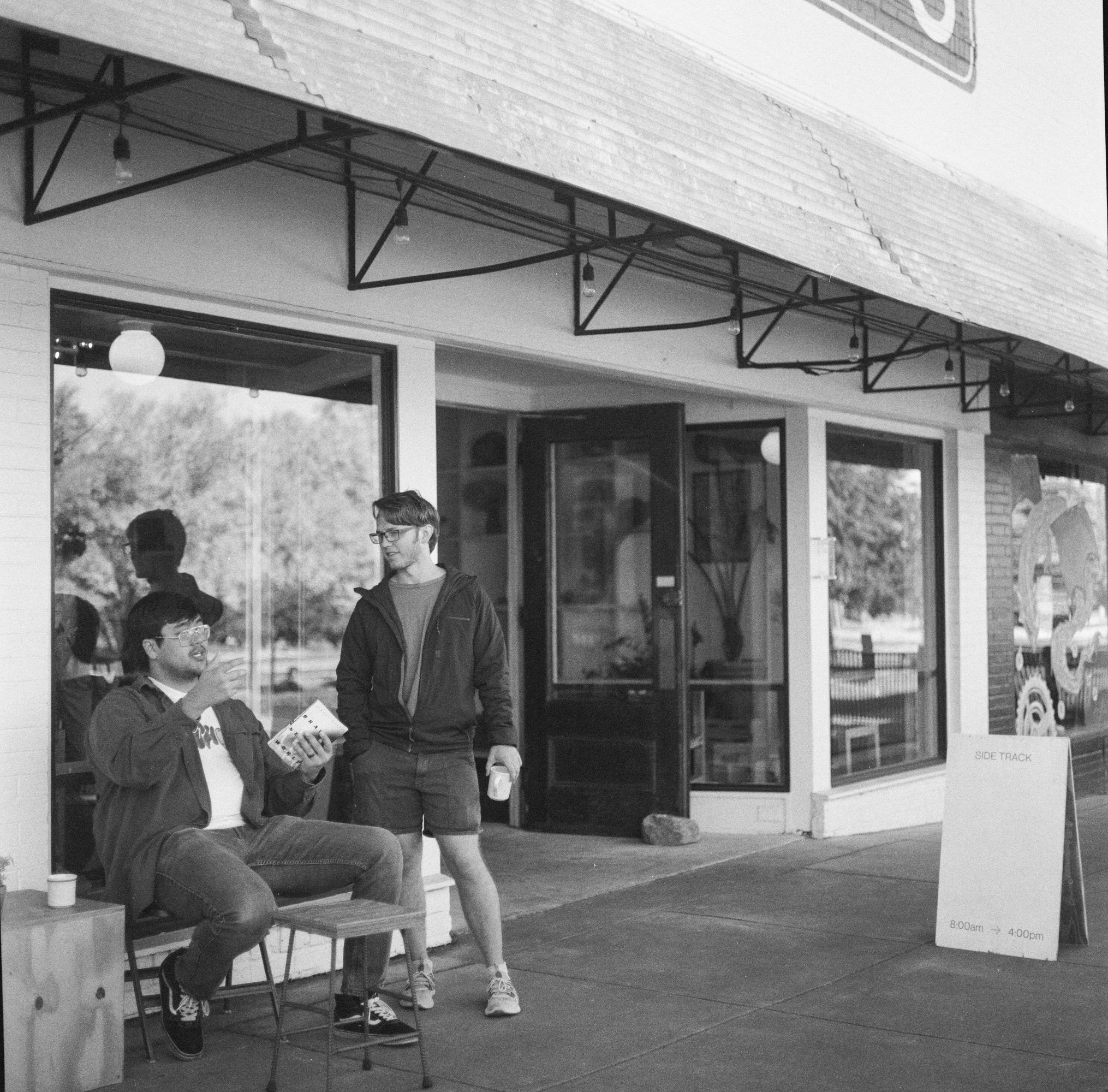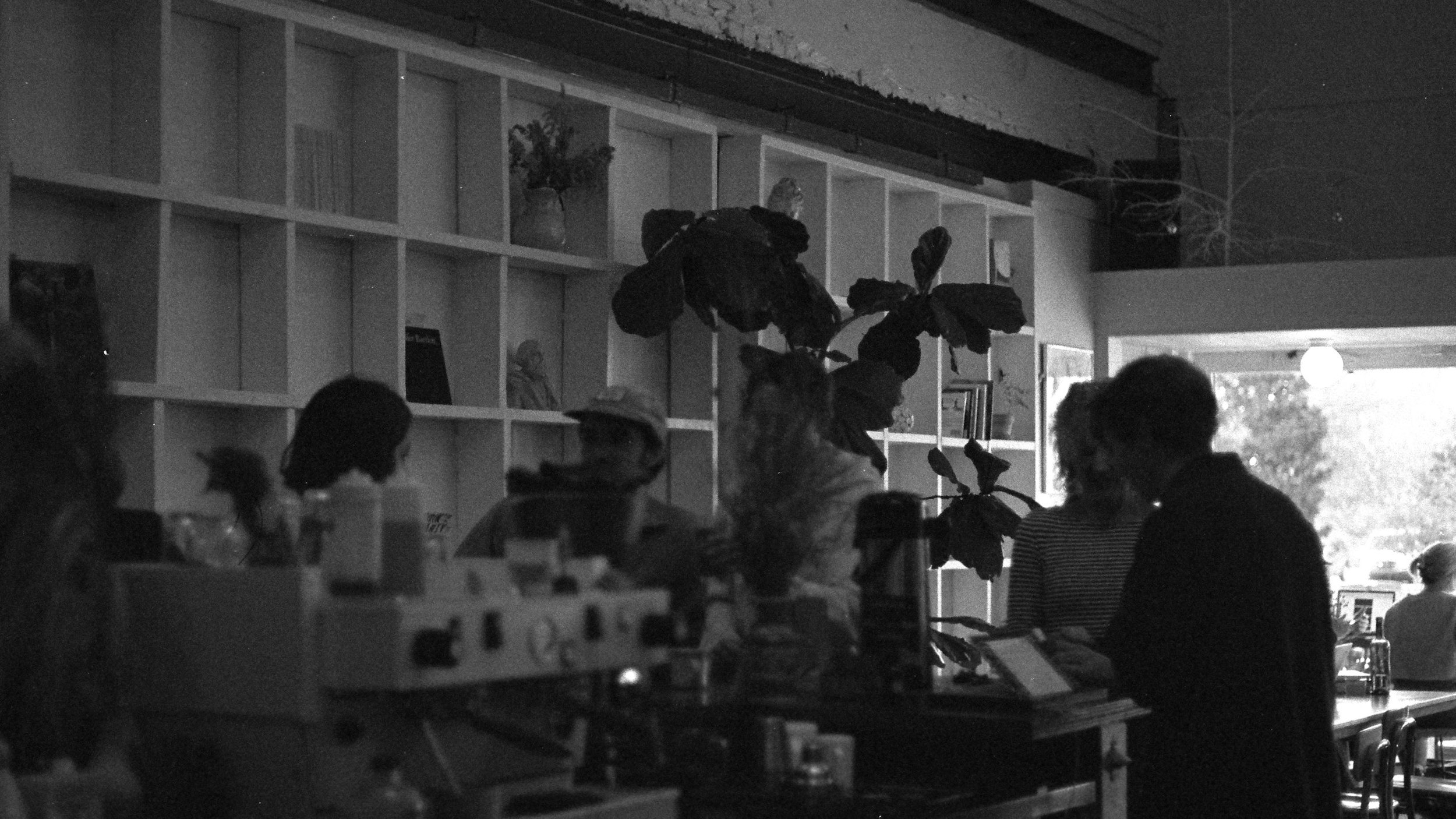We All Agree. Now What?
This piece is inspired by our journey with Dave Bizilia in helping realize the dream of Side Track Coffee; what our community needed & dreamed of, but didn't know how to have. Side Track, thank you for being our town’s community center, neighborhood cafe, & the most profound example of hospitality personified.
Author: Nelson Marsh | Photos: Rylan Chapman
The needs of a town are as diverse as the needs of the people who call it home. And it is precisely the alignments, intersections, and conflicts of these needs that form the work of redeeming cities. We often find our clients' initial needs focus on the conflicts that have been holding their city back. Whether regulatory, intrapersonal, or financial, resolution is normally the end goal. But the more precarious problem, and one that invariably emerges when we have gotten through enough of the conflict to see a common vision, is the project that everyone wants, but seems impossible.
In these instances, the government, asset owners, and public have a strong desire to see something come to fruition, but no one seems to be able to get all of the pieces together. This is the hard work of alignment, and it’s often the most important thing that we can give our clients, and our communities. And precisely because it is so important, we have put together a few of the tools that we use to make sense of the storm, hopefully they will add as much value to your community as they have to ours.
Focus on non-negotiables
When we start a project, it’s natural to focus on the grander vision; painting the project with broad strokes. In this view, we also tend to paint the characters in the vision in similarly simplistic terms. Let’s take, for example, an underperforming trailer park right in the heart of our city. In broad terms, we may say that the current property owners inherited it and have no reason to put a penny into it, so it gets worse every year. But if we were to look closer, we would see that the property owners probably can’t justify the amount of capital needed to update or redevelop the park. Further, no landlord likes dealing with the constant frustration of a dilapidated property. And this is not to mention the very real possibility that the tax consequence of the sale would be so great, that it would be a fool’s errand. But they would still love to be rid of the place, and see it become an asset to our city.
Now imagine that a developer comes along and wants to turn the property into quality multi-family housing that is desperately needed in the city. They require that the deal ‘works’, meaning that the entitlements, terms, and duration of the project align with the needs of their capital. They do this for a living, and every project must pass muster. But they find that the city has no tract for urban development entitlements, and are left in the lurch.
And of course the city government is perpetually hounded by the citizenry to “Do something!” about this trailer park which they view as a source of pain and frustration in the heart of their town. The city is, understandably, frustrated because they are limited to indirect means of addressing the problem, but completely exposed to the wrath of the public until they do.
Sound familiar?
In every instance above, one of the stakeholders in the project has a non-negotiable. A need that must be met to proceed. For the developer, it’s profitability. For the government, it is compliance. And for the property owners it is a transfer where they are not simply being robbed of an asset. These are the core requirements of the project.
If you want to see this trailer park developed for the good of the city, you must view the non-negotiable positions as sacred in any plan you try to affect. Because without the participation of all parties, the project will fail. Honoring these needs by no means ensures success, but failing to ensures failure.
Compartmentalize Your Problems
No this isn’t bad personal advice. Rather, it’s an acknowledgement of the fact that everyone has a panoply of things pulling at their attention. Our place is not to burst into their office with another multi-faceted problem for them to figure out. If we want the best possible chance of success, we need to listen to their non-negotiables, and then ask them specific questions to solve other peoples' needs.
Take for example the above development problem. It would be the picture of folly to burst into the city planner’s office and ask them to solve every problem in the stack of that development. But imagine that you came to ask them about a stormwater variance from tying into a neighboring retention pond with extra capacity. They could probably help you see the light on that issue. Now imagine that you asked them what was giving them heartburn about the project, and they tell you that a DOT requirement is making it really difficult to give you the number of curb cuts that the developer is asking for. You take this back to the developer, and they say that one is only for trash access, so they can move the dumpster, since they now have a space where they were going to have to put a retention pond. Voila, you have solved two problems, and are at the top of everybody’s Christmas list.
Be a Wellspring of Optimism
The seemingly endless back and forth that is required to pull these sorts of projects off can be demoralizing. This is just the nature of doing complex things, involving multiple interests. This is why it’s so rare to see these sorts of projects come together in the absence of a dedicated professional development team. But if you are reading this, the odds are pretty good that your ‘development team’ is a group of people bound by a shared vision, but with myriad other responsibilities.
Your job is to be a glass of water in the desert. If you want to accomplish the big lifts that will change your city, you have to be an unwavering voice of optimism in the project. No matter what, we must always maintain that the project can be done, should be done, and will be a benefit to everyone involved. If you can be the ‘everyone wins’ cheerleader, you will massively increase your chances of success.
Does the above sound like the tension that you are living in? Are the terms all greek to you, but something stirs your soul when you think of change in your town? Do you have a cry of outrage? In any of these cases, we would love to hear from you. The Marsh Collective is a wellspring of connection and wisdom for all things redemptive real estate. So whether you are knee deep in saving your city, or are standing on the sidelines asking if you should be the hero for your city, we have the tools and experience to help. Be sure to check our all the services we offer to see how we can give you a helping hand. And as always, we invite you to tune into The Redemptification Podcast, where we have meaningful conversations about the work of redeeming people and places.






